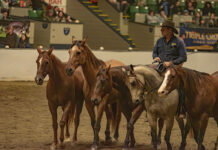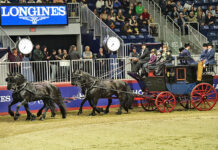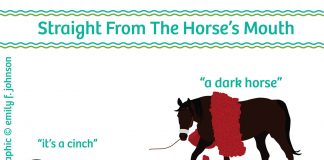 |
Friends of Sound Horses (FOSH), which advocates ending the illegal and cruel practice of soring, announced it has compiled an analysis of recent Tennessee Walking Horse show-ring winners, providing new insight to the question of whether soring is required to win competitions.
According to FOSH, several judges for the 2008 Celebration also had HPA violations. An analysis of the violation records reveals that of the five individuals selected to judge the 2008 Celebration, there are 14 HPA violations shared among them. The Celebration is considered the most prestigious Tennessee Walking Horse show in the World.
Soring is the deliberate infliction of pain on a horse’s front legs, via chemical or mechanical means, to make it painful to bear weight. Critics have long complained that soring is used to increase the high-stepping action of some show-ring gaited horses, particularly “big lick” Tennessee Walking Horses. The Horse Protection Act prohibits and makes it illegal to show, sell, auction, exhibit or transport sored horses.
For more information, visit www.fosh.info.






People who advocate or practice soring should be ashamed of themselves. It is a very cruel practice and no one who cares for horses would consider using it.
aww… that is so horible, those poor horses!
That’s terrible! I hope those horses get help.
You are all SO uneducated. You have no clue what you’re talking about. These horses are all sound and unharmed. you have to look beyond your 73%. Why is the number so high? Wouldn’t that ring a bell in the head of horse welfare advocates. I don’t doubt that 73% of them have penalties. A perfect example of this is when the owners of my horses and the current trainer obtained a suspension from the USDA. They were taking a 2 year old stud horse through the DQP when a USDA official quickly approached the horse from the side and it spooked. The assumption was that since the horse spooked, it was sored. This only reinforced how little horse sense the USDA has. Any good horseman would know to not approach any horse in such a manner. This earned the 2 owners a year long suspension and the trainer a six month suspension. Its things like this that only emphasize the ignorance of the USDA.
It’s cases like that which add to your statistic. This is only a look at the tippy top layer. You aren’t looking deep into the issue to see that there really isn’t an issue with the horses, but rather the USDA and the inspection process. Look up your facts thoroughly before posting articles like this than end up tarnishing the image of the TWH trainers, owners, exhibitors, and horses themselves.